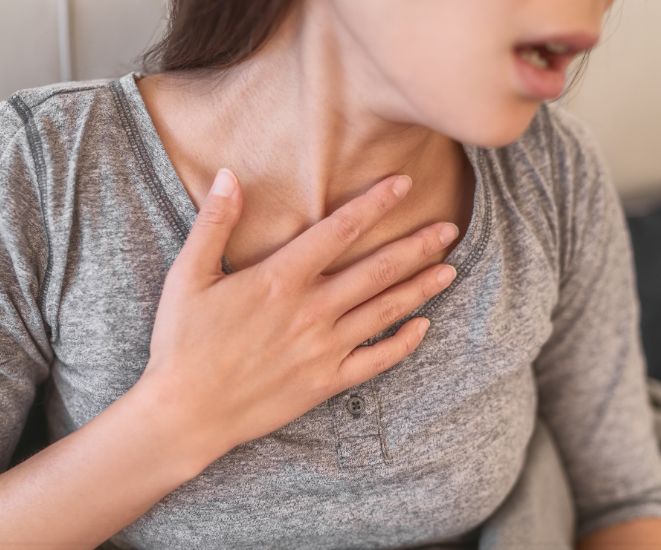Lung Check
Chronic Obstructive Pulmonary Disease (COPD) is a serious lung condition that can make breathing difficult.
10 Signs of COPD
1. Wheezing
You may hear a whistling sound when you breathe, which is caused by narrowed or blocked airways.
2. Fatigue
Feeling excessively tired, even after a full night’s sleep, is common. This can occur because your body struggles to get enough oxygen.
Related Search Topics (Ads)
3. Chronic Cough
A persistent cough that doesn’t go away can be a strong indicator of COPD. Many people experience mucus or phlegm, especially upon waking.
4. Bluish Lips or Fingernails
If your lips or nails have a bluish tint, it may indicate that your body isn’t getting enough oxygen—a concerning sign that warrants immediate medical attention.
5. Shortness of Breath
Experiencing breathlessness during routine activities like climbing stairs or walking can signal the onset of COPD.
6. Mucus Production
Frequent coughing up of thick mucus is another sign that your lungs may be irritated, which can be a symptom of COPD.
7. Chest Tightness
You might feel a sensation of pressure or tightness in your chest, making it hard to take deep breaths.
8. Swollen Ankles, Feet or Legs
If you notice swelling in your lower body, it could indicate poor circulation related to lung function issues.
9. Frequent Respiratory Infections
Individuals with COPD often have a higher risk of lung infections, such as pneumonia or bronchitis, which can exacerbate symptoms.
10. Weight Loss
Unintentional weight loss can occur as the body uses extra energy to breathe, signaling potential COPD.
Common Treatments for COPD
Although there is no cure for COPD, several treatments can help manage symptoms and enhance quality of life:
- Pulmonary Rehabilitation: This comprehensive program combines exercise, education and breathing techniques to help manage symptoms effectively.
- Bronchodilators: These medications are designed to relax the airways, making it easier to breathe. They are often administered through inhalers for daily use.
- Oxygen therapy: If your oxygen levels are low, supplemental oxygen may be necessary, which can be used at home or while traveling.
- Healthy eating: Maintaining a balanced diet is vital for overall health and energy, especially if you experience weight loss due to COPD.
- Steroids: These medications can help reduce inflammation in the lungs and are often prescribed during flare-ups of symptoms.
- Quit smoking: The most critical step for anyone with COPD is to stop smoking. This can significantly slow disease progression, with many resources available to assist.
If you recognize any of these symptoms, it is essential to consult a healthcare provider as soon as possible. Early detection and treatment are crucial for managing COPD and improving your overall health.

